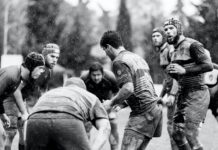This thing we call recruitment is one part crystal-balling: predicting which applicants have the highest likelihood of future success in the role.
For years now we’ve all been told that best-practice in the ‘selection’ piece of recruitment looks like:
Review cover letters – to see the highlights of the applicants’ rationale for applying
Review resumes or curriculum-vitae – to see that the applicant has the requisite skills and experience in our field
Conduct structured interviews – quite possibly a ‘behavioural event interview’ – to confirm that the applicant can indeed do the things they said in the cover letter or resume – and of course to tell if they’re a ‘fit’ to our culture
In the more enlightened age and businesses, maybe do a personality test – to get insights into their preferred style at work
Conduct reference checks – to again confirm that they can and did do what they said they did at the interview
Go to that length and do it all thoroughly and you’re sure to pick the winner! Right? Well in the current Australian vernacular – “Yeah, nah.” – You see… A recent revelation in Harvard Business Review shows that that exhausting list of time-consuming activities only has a .26 level of predictive reliability! (Where the ideal number is 1)
What the…!

You see ‘the game’ has changed. Try typing “Resumé writing services” into the Google search bar. I did that just now and I was presented with over 408 million – yes million – responses to that query. So quite possibly, many of the resumés (and cover letters) you are reviewing and being impressed by, in response to your job ad, may have been written by a professional resumé writer. In terms of its reliability as a means of predicting likely success in the role you are advertising for – well that’s questionable.
But that’s ok, because you have a structured interview process, right? Hmmm…
Choose just one of 200,000,000+ tutorial videos of about 2-3 minutes length, watched on the applicant’s device just before they step into reception at your office and one of the best sales of their life will be made right there!
According to Richard Nesbitt, Professor of Social Psychology at the University of Michigan:
“When it comes to choosing a candidate, (traditional) interviews are as much use as flipping a coin.”
And in fact, even LinkedIn are now advising:
“Studies show the traditional job interview predicts job performance as well as no interview at all. Interviewees can give rehearsed answers and interviewers are unconsciously biased to pick candidates whom they like rather than those with the most potential.”
Now I’m not saying don’t do interviews. You do need to do them in order to get any understanding of the person. But understand that you cannot and should not rely on these alone as having any kind of predictive validity. And that’s what the selection phase is all about! Predicting whether this person can do and will do the things you intend to hire them for. And do them well. But Caveat Emptor my dear friends! Especially you DIY die-hards… your mind plays tricks on you.
Because we human beings fall victim to our subconscious (or, unconscious) biases – especially those who do not conduct interviews for a living. And as a consequence we use erroneous ‘data’ (sometimes incorrectly positive and sometimes incorrectly negative) to make hire/don’t hire decisions. And research is now revealing that because of these biases, the traditional interview process is quite ineffective at discerning people-skills (aka ‘soft’ skills – I hate that term) or an applicant’s inherent weaknesses. And these areas are showing to have at least equal importance in the success of an individual in almost every role in the business. Especially for my clients – the small and medium size enterprises where the impact of a bad hiring decision can be catastrophic.
“the traditional interview process is quite ineffective at discerning people-skills”
I find it fascinating that with all of the advancements in technology that have occurred in the last 10 years alone, when it comes to recruitment, the methodology still remains incredibly analogue and absolutely prey to the vagaries of the human mind.

It’s time for data to be playing a much bigger role in recruitment decision-making.
As I’ve written elsewhere, this thing we call recruitment is one part marketing – attracting talented individuals to show an interest in your job opening – and then one part crystal-balling – predicting which applicants have the highest likelihood of future success in the role.
As we take a closer look at the predictive piece, what are the facts that will tell us this person is a strong contender?
(I’ll be writing on this subsequently but let me tell you that it’s not past-performance…)
Quite simply the data we need to evidence is:
1) do they possess sufficient competence to perform the routine tasks associated with the role. Do they possess the competencies of (21st Century) selling?
2) do they possess the intellect required to comprehend, analyse, interpret and respond to the sort of information which forms an everyday part of the role? (and to be able to learn all of the new things which will surely come along)? (BTW, IQ still remains one of the strongest predictors of success in ANY role)
3) are they naturally hardwired so that the way we need them to behave and conduct themselves, in order to be successful in the role comes naturally to them? (Eg. How naturally assertive are they… and what does success in this role require? What if they’re too assertive?)
4) how effectively do they deal with the stresses that come with the role? (There’s almost no other role in the business that has the level of everyday performance expectation (“Have you dialled 50 suspects today?”), coupled with the levels of potential rejection, that sales does).

For an overwhelming majority of businesses those 4 areas are assessed using analogue methodologies, which date back to the 1950’s or more. But it’s the 2020’s now and each can be measured via online assessments which will produce rich and vastly more reliable data.
By way of example, Objective Management Group is the provider of its OMG Sales Assessment, which is rated as enjoying a 95% success rate in predicting sales high performers. The assessment not only identifies which skills (competencies) a candidate has relating to different aspects of the sales process, it goes deeper to understand what are the underlying psychological beliefs that may stop a candidate from executing on those skills. The third aspect it measures is the Will to Sell – desire, commitment, outlook and responsibility. This tool has been voted as the most effective sales capability assessment in the world, each year, for the last 9 years, with in excess of two million respondents.
Accompanying this is a tool known as the Profiles Sales Assessment, from Wiley. It’s a multi-construct psychometric assessment which discerns the respondents’ cognitive abilities, hardwired behavioural traits and occupational interests. The individuals’ results are then compared with a benchmark that has been created by profiling known high-performers in that role. The predictive reliability of this tool is rated at .82 – and unlike so many other poorly constructed ‘personality’ assessments, if you sit this test again in 3 years there will be a .95 correlation to the original results.
Using a high-performance cohort including 180-degree input from their managers, it is also possible to develop an ‘Expert Benchmark’ which shows the Interpersonal Strategies (aka emotional range) that high-performers draw upon when facing increased pressure/stress. This tool forms part of the Australian-owned Expr3ss predictive-hiring platform.
This combination of approaches alone means you can decide to hire a future sales star with 300%+ more reliable data, than the ole resume and “If you were an animal, what kind of animal would you be?” or, “Where do you see yourself in 3 years?” bullshit interview questions.
Look, the list goes on and is growing by the day, of ways in which as a hiring manager you can much more cleverly discern, using data and behavioural science which candidates have got ‘the right stuff’ for your sales vacancy.
It’s time to stop recruiting with your fingers crossed on one hand behind your back. It’s time to start leveraging data-driven recruitment.
































